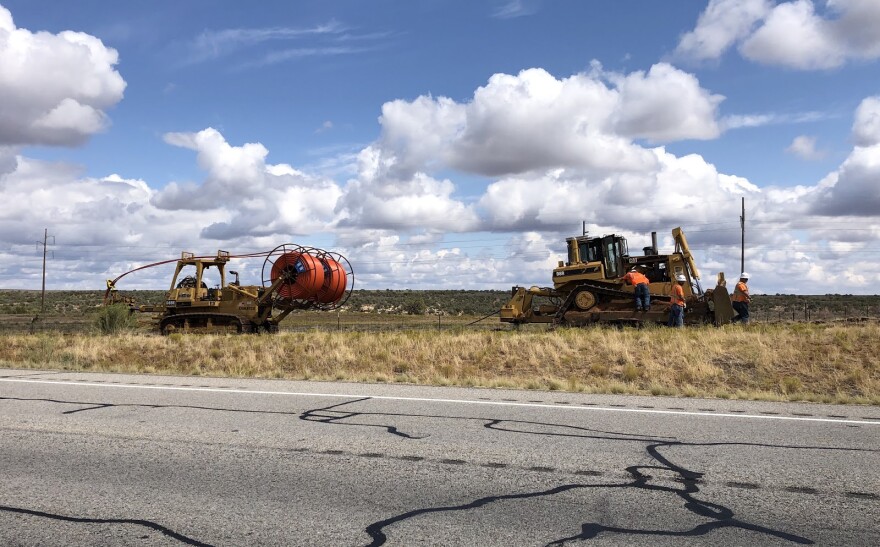Utah will join a national effort to bring the “Internet for All,” which is part of an initiative funded by the Bipartisan Infrastructure Law.
The need for high-speed internet became more urgent during the pandemic — especially in rural and tribal communities, according to Rebecca Dilg, director of the state’s Broadband Center.
At least about 10% of Utahns don’t have an internet connection, and she said that number is higher when it comes to broadband.
“Think about what you were doing three years ago as to what you're doing today and the devices you have,” she said. “Think about what's it going to be like three years from now? It's just an opportunity to get everyone online. We shouldn't be leaving anyone behind.”
Right now the state is focused on mapping where people need high-speed internet, and residents can self-report at speedtest.utah.gov. This is the first step in a 10-year program by the state to get everyone connected.
Rural internet access is also playing out at the federal level. Rep. Burgess Owens, R-UT, and Rep. John Curtis, R-UT, are cosponsors of HR 1650, which would require the Federal Communications Commission to study the impacts of big streaming services on rural customers.
“Rural broadband services are essential for remote education, telehealth, and telework,” said Owens in a release. “The Rural Broadband Network Study Act would launch a study into the financial impact and projected strain of major streaming services on rural broadband networks, shedding light on the burden of costs placed on consumers, rural providers, and local governments.”
Upgraded and expanded infrastructure from the federal government’s infrastructure law will solve the problems of slower speeds, according to Ernesto Falcon, a senior legislative counsel at the Electronic Frontier Foundation.
“You just need to build fiber out in these areas,” he said. “Once you deploy high capacity, 21st century infrastructure, all of these challenges, congestion and costs vanish because it's just not what the future tech deals with at all.”
Falcon said Utah is “uniquely advantaged” among other states to bring high-speed infrastructure to rural areas because of the work underway from UTOPIA Fiber, a network of 11 cities in the state that operate fiber networks. The local entity already has a fairly robust infrastructure which, he said, will only be helped by the federal funds.






